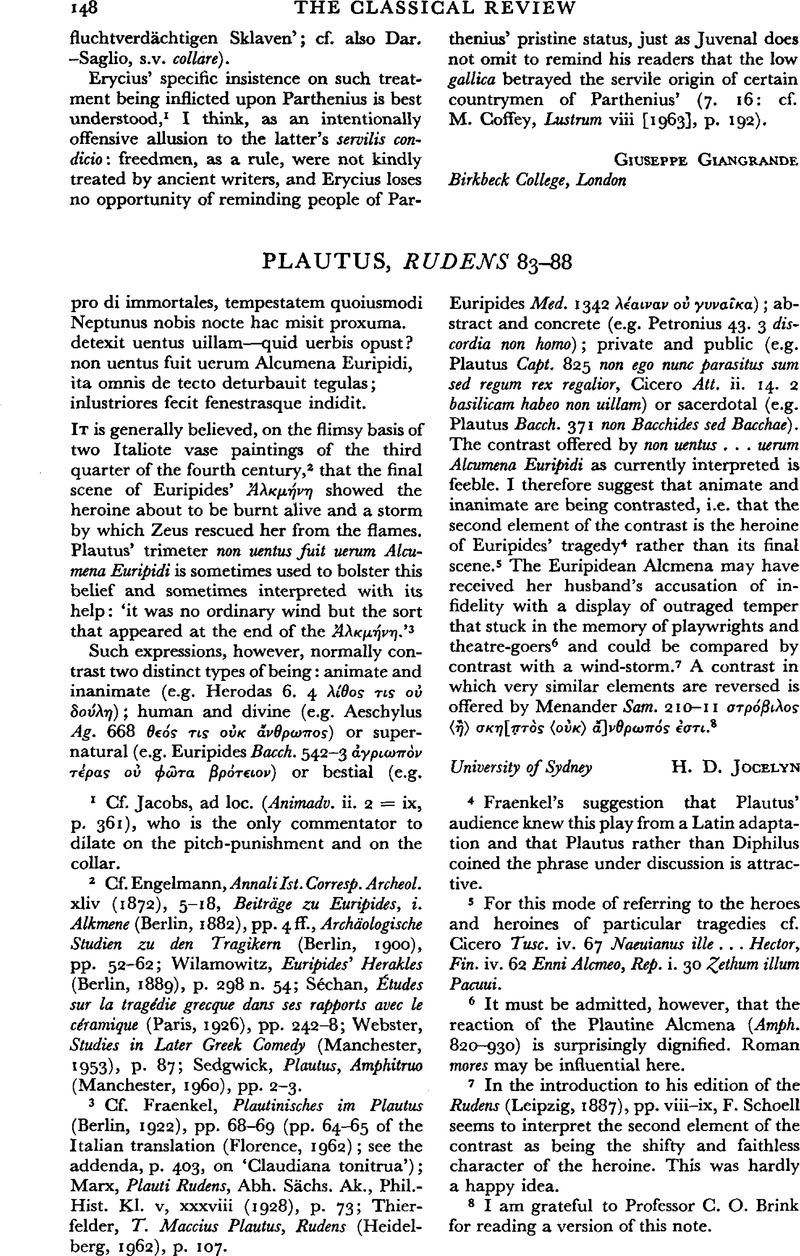No CrossRef data available.
Published online by Cambridge University Press: 27 February 2009

2 Cf. Engelmann, , Annali Ist. Corresp. Archeol. xliv (1872), 5–18Google Scholar, Beiträge zu Euripides, i. Alkmene (Berlin, 1882), pp. 4ff.Google Scholar, Archäologische Studien zu den Tragikern (Berlin, 1900), pp. 52–62Google Scholar; Wilamowitz, , Euripides' Herakles (Berlin, 1889), p. 298 n. 54Google Scholar; Séchan, , Études sur la tragédie grecque dans ses rapports avec le céramique (Paris, 1926), pp. 242–248Google Scholar; Webster, , Studies in Later Greek Comedy (Manchester, 1953) P. 87Google Scholar; Sedgwick, , Plautus, Amphitruo (Manchester, 1960), pp. 2–3.Google Scholar
3 Cf. Fraenkel, , Plautinisches im Plautus (Berlin, 1922), pp. 68–69 (PP. 64–65 of the Italian translation (Florence, 1962)Google Scholar; see the addenda, p. 403, on ‘Claudiana tonitrua’); Marx, , Plauti Rudens, Abh. Sächs. Ak., Phil.-Hist. Kl. v, xxxviii (1928), p. 73Google Scholar; Thier-felder, , T. Maccius Plautus, Rudens (Heidelberg, 1962), p. 107.Google Scholar
4 Fraenkel's suggestion that Plautus' audience knew this play from a Latin adaptation and that Plautus rather than Diphilus coined the phrase under discussion is attractive.
5 For this mode of referring to the heroes and heroines of particular tragedies cf. Cicero Tusc. iv. 67 Naeuianus ille … Hector, Fin. iv. 62 Enni Alcmeo, Rep. i. 30 Zethum illum Pacuui.
6 It must be admitted, however, that the reaction of the Plautine Alcmena (Amph. 820–930) is surprisingly dignified. Roman mores may be influential here.
7 In the introduction to his edition of the Rudens (Leipzig, 1887), pp. viii–ixGoogle Scholar, F. Schoell seems to interpret the second element of the contrast as being the shifty and faithless character of the heroine. This was hardly a happy idea.
8 I am grateful to Professor C. O. Brink for reading a version of this note.